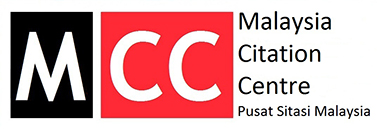Experimental Investigation on CI Engine Using Waste Transformer Oil Methyl Esters as Bio Diesel
Abstract
Modernization and increase in the number of automobiles worldwide, the consumption of diesel and gasoline has enormously increased. Day by day the demand for non renewable energy sources increases. Automobile leads to demand for petroleum based fuels. The present investigation oil is taken the waste transformer oil .The transformer oil is produced from wax-free naphthenic oils. Transformer oils are an important class of insulating oils. They act as a heat transfer medium in the transformer. After certain period of time of operation in the transformer the oil is thrown out in the form of waste. So the suitability of using waste transformer oil as alternative fuel for compression ignition engine and comparing its performance parameters with conventional diesel. Experimental investigation is carried out on 4 strokes –twin cylinder water cooled diesel engine. Preparing blends of transformer oil with diesel like T10, T20, T30, and T40 and comparing its performance parameters with conventional diesel. Among these blends selecting optimum blend and adding ignition improver in a different proportions and finding optimum blend. Then comparing performance parameters of the optimum blend with conventional diesel fuel. Here use Isopropyl alcohol is as ignition improver for optimum blend. Based on the earlier finding the current experimental investigation investigated the possibility of using waste transformer oil is a diesel substitute. The objective of the present research was to explore technical feasibility of waste transformer oil in direct injection C.I engine without any substantial modifications in the engine design.
Downloads
References
A.Demirbas, “Progress and recent trends in biodiesel fuels”, progress in energy and combustion science, vol.50, 2011, pp.14-34.
L. Lin, Z. Cunshan, S. Vittayapadung, S.Xiangqian, D. Mingdong, “Opportunities and challenges for biodiesel fuel,” Applied Energy, vol.88, 2011, pp.1020-1031.
B.Singh, J.Kaur and K.Singh, “production of biodiesel from used mustered oil and its performance analysis in internal combustion engine,” Journal of Energy Resources Technology, vol.132, 2010, pp.1-4.
S Jaichandar., K Annamalai, “The status of biodiesel as an alternative fuel for diesel engines,” Journal of Sustainable Energy and Environment, vol.2, 2011, p.p.71-75.
Z.M.Hasib, J.Hossain, S.Biswas, A.Islam, “biodiesel from Mustard oil: A renewable alternative fuel for small diesel engines,” Modern Mechanical Engineering, vol.1, 2011, pp.77-83.
G.L.N.Rao, S.Sampath and K.Rajgopal, “ Experimental studies on the combustion and emission characteristics of a diesel engine fuelled with used cooking oil methyl ester and its diesel blends,” International Journal of Engineering and Applied Science, vol.4,2008,pp.64-70.
S.P.Sing, D.Sing, “Biodiesel production through the use of different sources and characterization of oils and their esters as the substitute of diesel: A review,” Renewable and Sustainable Energy Reviews, vol.14, 2010, pp.200-216.
M.G.Bannikov, “Combustion and Emission Characteristics of mustard biodiesel,” 6th International Advanced Technologies Symposium (IAST’11), Turkey, pp.1-15, 2011.
M.Lapuerta, O.Armas, J.Rodriguez-Fernandez, “Effect of biodiesel fuels on diesel engine emissions,” Progress in Energy and Combustion Science. Vol.34, 2008, pp.198-223.
N.R.Banapurmatha, P.G.Tewaria, R.S.Hosmath, “Performance and emission characteristics of a DI compression ignition engine operated on honge, jatropha and sesame oil methyl esters,” Renewable Energy, vol.33, 2008, pp.1982-1988.
J.M.Lujan, V.Bermudez, B.Tormos, B.Pla, “Comparative analysis of a DI diesel engine fuelled with biodiesel blends during the European MVEG-A cycle: Performance and emissions (II),” Biomass and Bioenergy, vol.33, 2009, pp.948-956.
S.K.Hoekman, C.Robbins, “Review of the effects of biodiesel on NOx emissions,” Fuel Processing Technology, vol.96, 2012, pp.237-249.
Downloads
Published
How to Cite
Issue
Section
License
JMET Copyright Principles
JMET seeks to retain copyright of the articles it publishes, without the authors giving up their right to use their own material.
Originality
The manuscript is neither been published before, nor is it under consideration for publication in any other journals. It contains no matter that is scandalous, obscene, libelous or otherwise contrary to law.
Terms of Acceptance
When the article is accepted for publication, the authors shall hereby agree to transfer to the Journal of Mechanical Engineering and Technology, all rights, including those pertaining to electronic forms and transmissions, under existing copyright laws, except for the following, which the author(s) specifically retain(s):
All proprietary right other than copyright, such as patent rights.
- The right to make further copies of all or part of the published article for my/our use in classroom teaching.
- The right to reuse all or part of this material in a compilation of my/our own works or in a textbook of which I/we am/are the author(s).
- The right to make copies of the published work for internal distribution within the institution that employs me/us.
The authors agree that copies made under these circumstances will continue to carry the copyright notice that appeared in the original published work. The authors agree to inform any co-authors, if any, of the above terms. The authors certify that they have obtained written permission for the use of text, tables, and/or illustrations from any copyrighted source(s), and they agree to supply such written permission(s) to Journal of Mechanical Engineering and Technology upon request.





